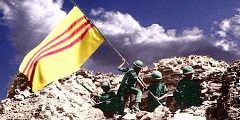Các quôc´gia Đông Á khác hâù như ít gây tội phạm ǵ ở Âu Châu, tuy nhiên Trung Quốc và CHXHCN Việt Nam chiếm những chương đáng kể :
http://www.europarl.europa.eu/commit...=EN&file=43151
Đa sô´ tội phạm tơí từ những nươc´ đă từng có chê´độ độc tài và xă hội lâu năm thiêú minh bạch :
The freedom of movement that people enjoy in post-cold-war Europe has turned Germany into a paradise for bands of ethnic criminals. Those made up of Russians, Romanians, Chinese and people from the former Yugoslavia are among the most successful, but those from Vietnam have emerged as the most brutal.
http://www.nytimes.com/1996/05/23/wo...ietnamese.html
Trong 2011, theo các cơ quan chức năng của Berlin (thủ đô Đức), số người tội phạm quốc tịch Việt Nam ngồi tù ở đây là 92 người, đứng thứ tư trong số những người nước ngoài, chỉ đứng sau số người Thổ Nhĩ Kỳ, Ba Lan và Li Băng (các quôc´gia Hố Giáo và cựu cộng sản hay cộng sản, hay là đă từng có chê´độ độc tài khác )
Unter den ausländischen Gefängnisinsassen dominieren die Türken (362) vor Polen (229), Libanesen (127), Vietnamesen (92) und Serben (85).
http://www.jungefreiheit.de/Single-N...ece88d4.0.html
And while cops are cracking down on the trade, crime-fighting agency Europol has warned there are now seven Vietnamese and Chinese gangs cultivating weed across the country....
The ruthless Asians, many of whom are involved in killings and human trafficking across Europe ...
http://www.drugsandalcohol.ie/17227/
http://www.thehealthwell.info/node/115866
Irish arrest 113 in raids focused on triad gangs
Associated Press – Wed, Nov 21, 2012
DUBLIN (AP) — Ireland's police force says its officers have arrested 113 suspected drug dealers and seized five marijuana growing facilities in the nation's biggest-ever crackdown on triad drug-trafficking gangs.
Police say most of those arrested during raids on 236 properties Tuesday and Wednesday are Chinese and Vietnamese nationals involved in growing, smuggling and selling marijuana in Ireland...
Most of those arrested are expected to be arraigned this week on charges including drug trafficking, robbery, burglary, arms possession and handling stolen goods....
http://news.yahoo.com/irish-arrest-1...171913062.html



 Reply With Quote
Reply With Quote


Bookmarks